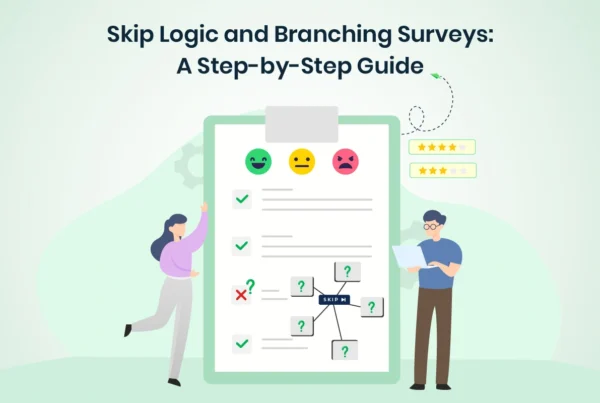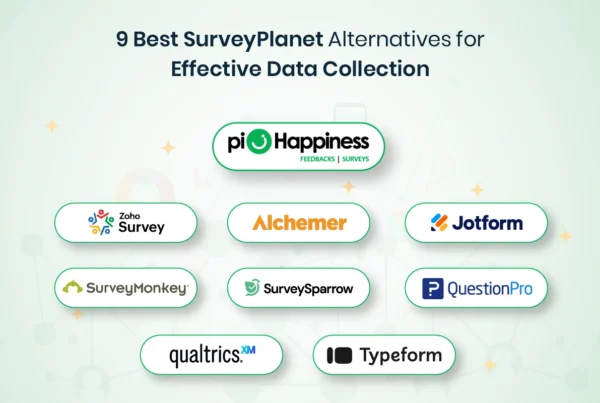Parents can have a massive impact on their children’s education, as they are always concerned about their children’s growth, progress, strengths, and areas for improvement.
In terms of how a school’s feedback on students helps parents measure their child’s performance, in the same way, parent’s feedback helps educational institutions strengthen academic settings. Parents’ inputs work as a valuable source for educational management who strive to change the learning methods, school culture, and community engagement.
Parents’ opinions are more than words on survey paper; they are a practical tactic that can successfully refute the school’s offerings and services. One cannot overstate the value of parent feedback for educational frameworks, and this blog will provide some insightful information on how to enhance your leadership in education using parent feedback as a powerful weapon.
Why Does School Need Parent’s Feedback?
Parental feedback is a goldmine of knowledge that academic institutions can use to enhance student performance and gain marketability. By allowing parents to express themselves clearly, schools are relieved of the burden of continually trying to accommodate every parental whim.
Additionally, it communicates to parents the importance of their voice and their role as significant stakeholders. Here are a few crucial reasons why schools need to collect parent’s feedback:
Boosts School Productivity
Feedback is essential for continuous improvement. Parents are the main stakeholders investing in their child’s future, so they will have better insights and suggestions for their child’s progress.
Parents have clear insights into each element contributing to their children’s education, from school policies and programs to teaching methods. Listening to parents’ thoughts and opinions attentively allows the school to quickly analyze their strengths and weaknesses and make informed decisions that spark productivity.
Keeps The School in the Loop About the Current Changes
Education is constantly evolving, and schools must stay updated with current trends to survive in the market. Parental feedback provides crucial information about these trends and developments that schools must know about.
Schools can greatly benefit from parents’ observations, remarks, and recommendations on innovative teaching approaches and educational technologies. When parents share their observations regarding emerging teaching methods and curriculum updates, schools can readily adapt and respond to students’ evolving needs and ensure that their learning programs stay relevant to current trends.
Using this input, schools can make necessary adjustments to maintain the relevance and efficacy of their curricula.
Better Student Engagement
Schools can observe substantial shifts in student engagement and satisfaction when parents actively participate in reviewing education and have a simple platform to express their concerns. With a focus on parents feedback to teachers, schools receive great insights that allow them to dive deep into the factors that give students motivation and encouragement through parental feedback.
After examining each parent’s thoughts and opinions, schools can discover what works best for each student and adapt solutions within instructional methods, extracurricular activities, and support systems. This parent-administrative partnership promotes a sense of shared responsibility between schools and parents, with both working toward the common objective of bettering learning outcomes.
How To Improve Parent’s Feedback?
Set Clear Goals
Before distributing those survey questionnaires to the parents, have a well-defined purpose.
- What do you want to achieve by collecting feedback from the parents?
- How will you collect the feedback?
- How will you measure it?
- In what ways are you going to integrate the feedback into your future developments?
- How do you want to communicate the changes to the students and parents?
You can focus entirely on what you want to improve and act accordingly by answering the above questions. For instance, if your goal is to boost student engagement, then with the help of parents’ feedback for schools, you can leverage the strengths, eliminate the weaknesses, and identify the gaps in the areas of improvement that directly influence the student’s learning engagement.
Discard Traditional Methods
The mere sight of paper survey forms will bore parents. In this technologically advanced world, sticking to the old approaches will cost you a great deal of time and effort from both educational institutions and parents.
Several methods and software can be employed to collect parental feedback. Methods include online surveys, phone surveys, mail-in surveys, kiosk surveys, and mobile surveys. However, not all survey methods suit every situation, and you need to choose the one that will give the best outcome.
Investing in efficient feedback survey software or tools will streamline the entire survey process—from collecting inputs to measuring them. These software or tools enable you to customize your survey questions, analyze trends, and compare reports in one place.
You must choose the suitable survey method and software to complete each phase successfully. For instance, you need software to collect qualitative and quantitative data from a large group, but to get more insights into a particular issue, you need to conduct focused group interviews.
Create an Appropriate Setting
When parents trust and feel part of the environment, they are more likely to participate in the survey process. Educational institutions must involve parents in every facet of learning and educational activities to develop a setting that is appropriate and appreciated by all parents.
An educational facility can only achieve the desired level of performance through feedback if it creates a respectful and safe environment for the parents. A safe and respectful environment will encourage parents to express their views, opinions, and suggestions without filters. To provide a safer and more respectful environment, acknowledge parents’ contributions, make them active members of the community, and promptly address their queries and issues.
Things to Consider While Surveying Parents
Educational institutions need to design impactful questions that generate high-quality responses. Gathering high-quality parent input is quite simple and depends primarily on the type of questions being asked.
Asking the Right Questions
Here, the right questions mean the questions that you believe a parent can answer and give you adequate details, as well as those within the parent’s capacity to respond. Include questions that are most influential in enhancing the classroom and learning environment. Do not include questions targeted at students that require management knowledge to answer.
Let The Surveys Be Short and Quick
Everyone works, whether it’s the school principal or the parents. It shouldn’t be taxing for parents to fill out the survey questions. A substantial amount of yes or no survey questions, combined with a few questions that require additional comments, will suffice to obtain the necessary data.
A short survey yields the greatest results. When the survey contains overwhelming questions, it will only leave the process with inadequate data and information, leaving educational institutions with many unanswered questions.
Choose the best route among SMS, Email, and Website surveys. This enables you to customize your questions and allows parents to choose the best option to quickly get done with the survey.
Wrapping Up
In the ever-changing world of education, parents play an important role in providing essential information to help their children develop. Their feedback acts as a catalyst for positive change, guiding organizations to excellence.








